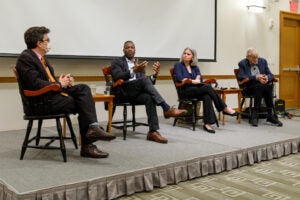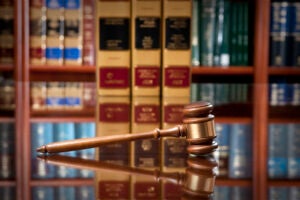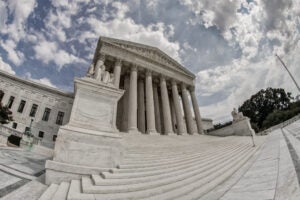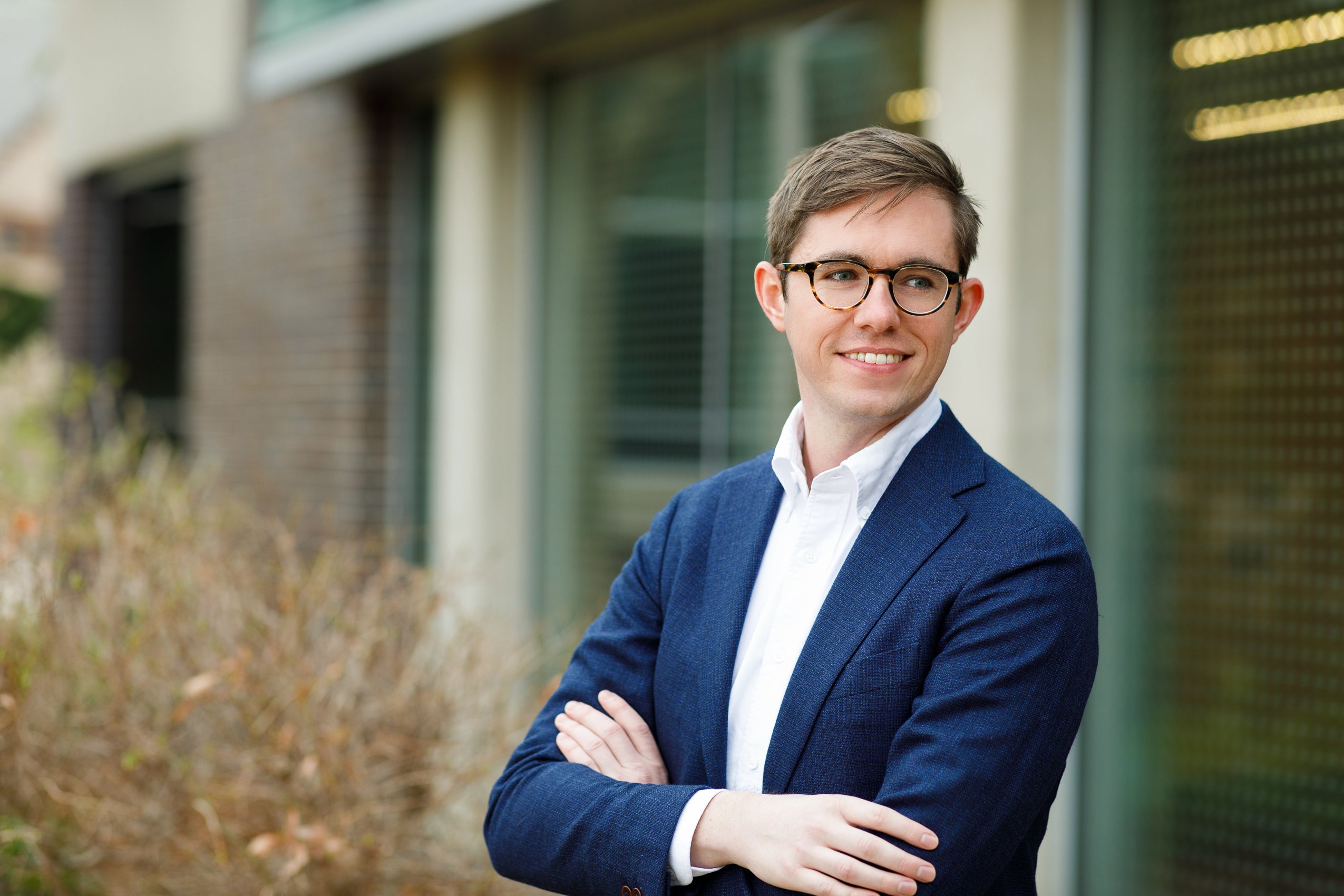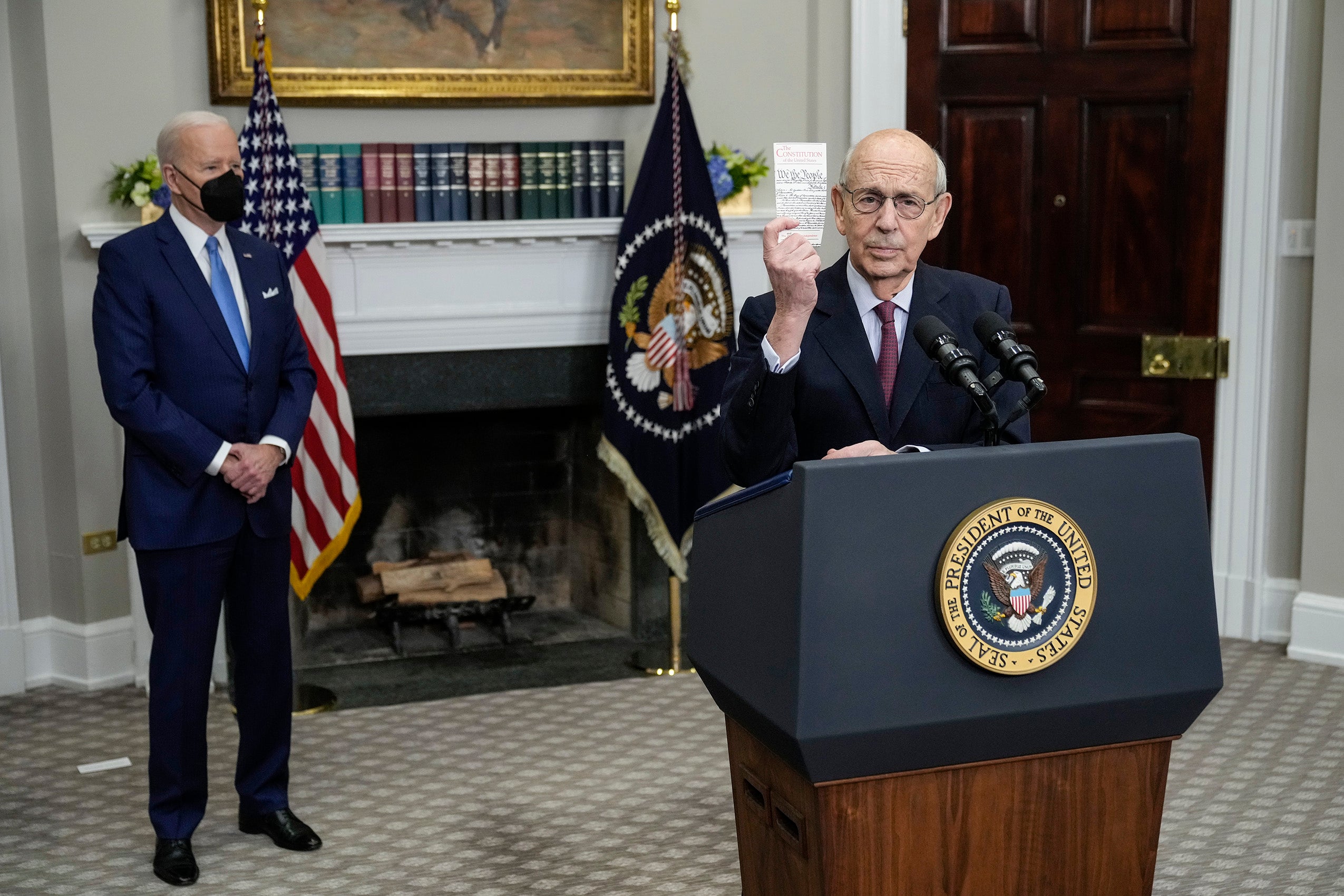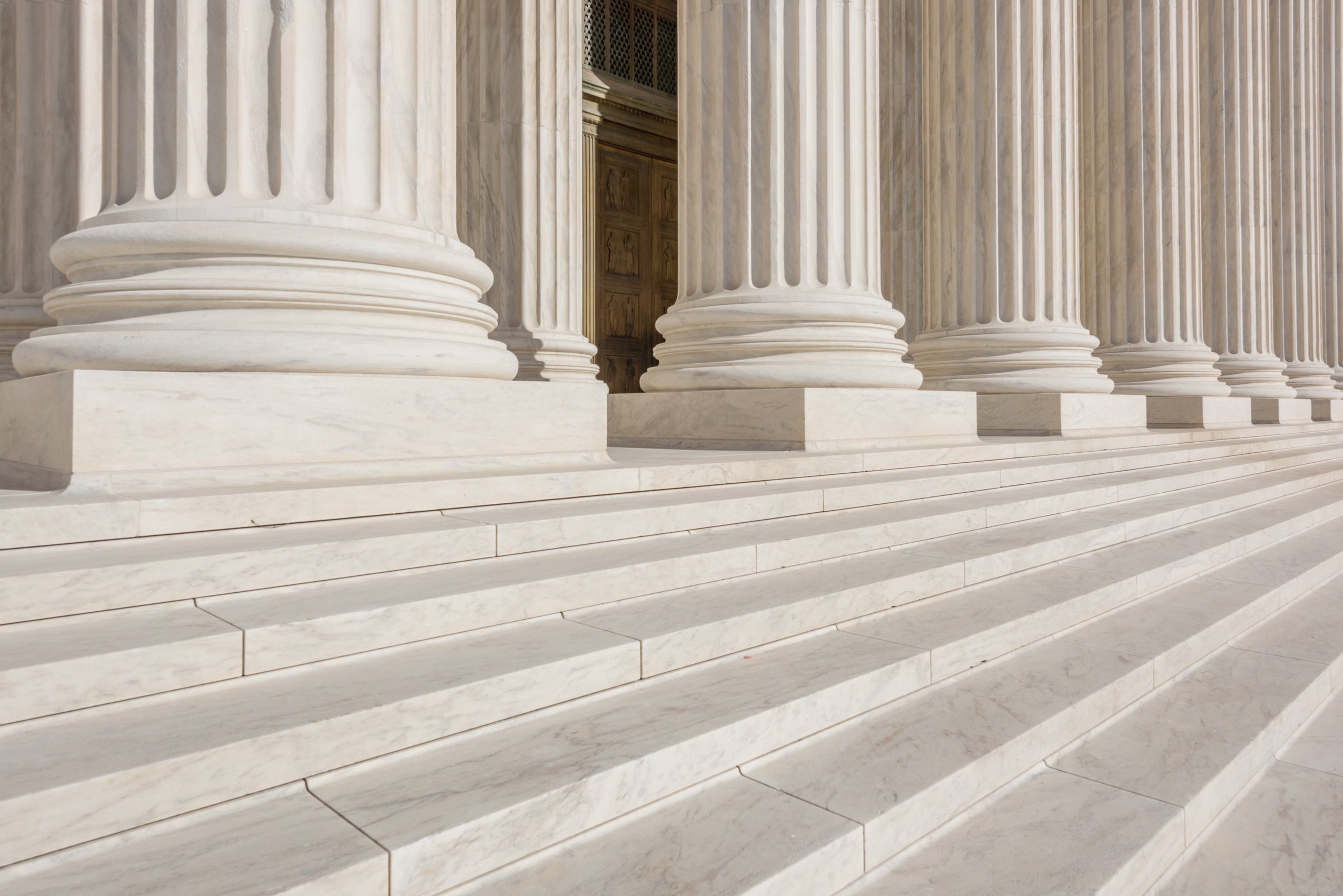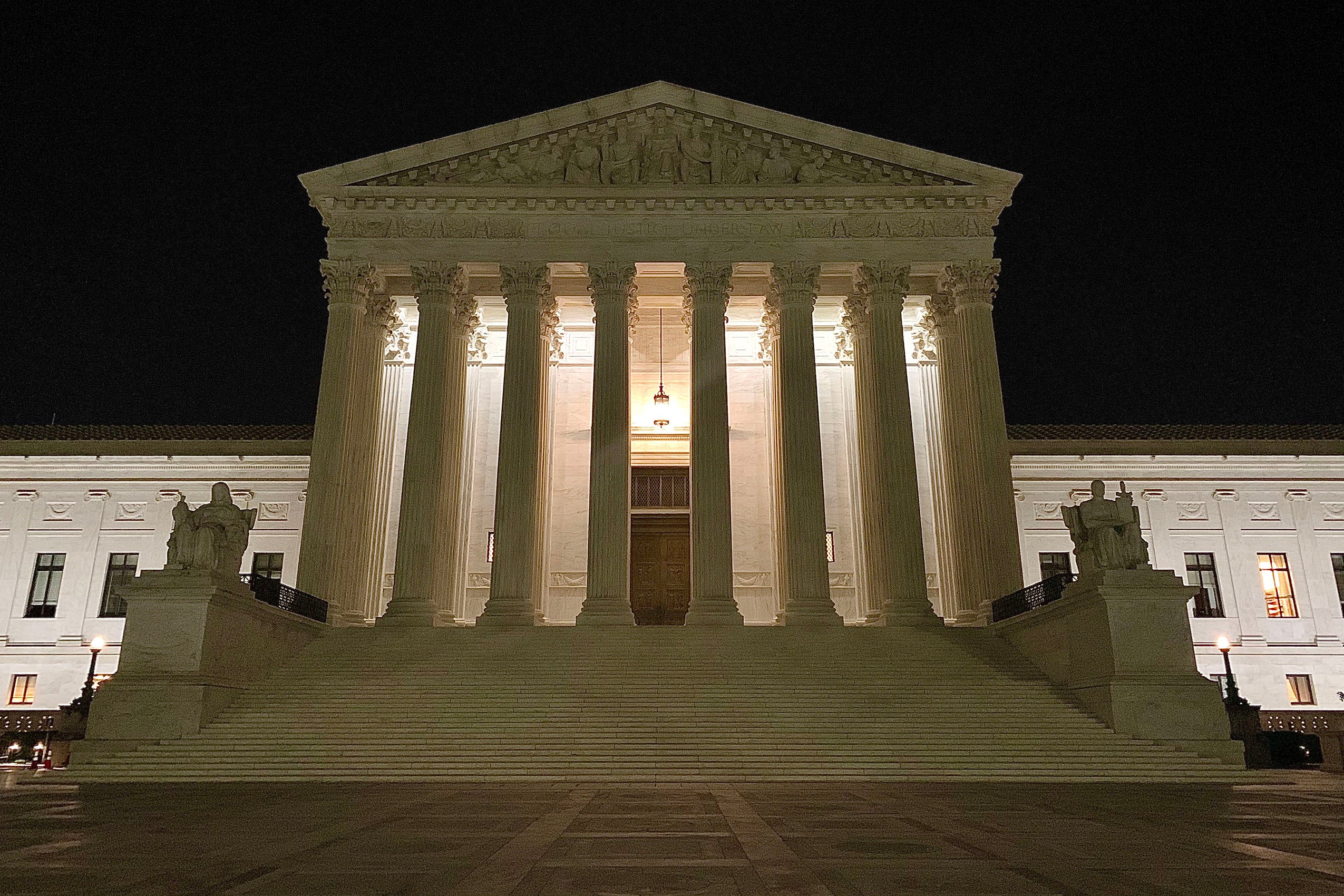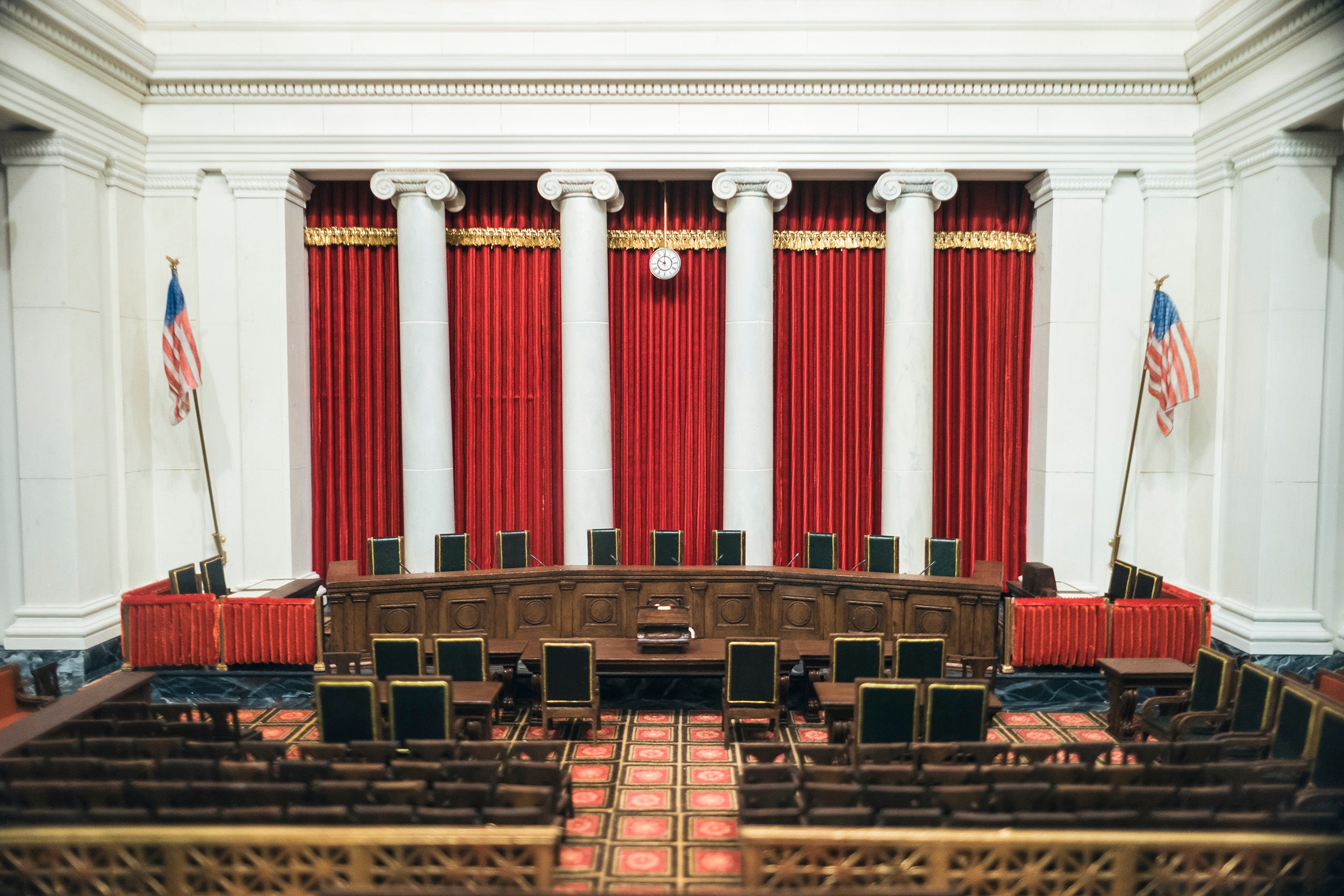People
Charles Fried
-
Why I changed my mind
March 2, 2023
Allowing ideas to evolve may lead to new, positive, and altogether different paths, according to Professors Guy-Uriel Charles, Charles Fried, and Rachel Viscomi.
-
The Deborah Project adding litigators against Critical Race Theory
January 13, 2023
The Deborah Project (TDP), a public interest law firm dedicated since 2016 to protecting Jewish civil rights in the American educational system, recently announced that…
-
In some years, Chief Justice John G. Roberts Jr. does the honors. In others, it might be Justice Sonia Sotomayor or Justice Clarence Thomas presenting…
-
‘In pursuit of an atmosphere in which ideas can be followed without fear that you’ll be punished’
December 6, 2022
Professors Jeannie Suk Gersen and Janet Halley lead the Academic Freedom Alliance, an organization that protects the rights of faculty to speak or publish without fear of sanction or punishment.
-
The Reactionary Court
November 8, 2022
An article written by Charles Fried: To the Editors: Jed S. Rakoff’s fine review of Brad Snyder’s biography of Felix Frankfurter [NYR, November 3] is…
-
Justice Alito’s Crusade Against a Secular America Isn’t Over
August 29, 2022
Some baby boomers were permanently shaped by their participation in the countercultural protests and the antiwar activism of the nineteen-sixties and seventies. Others were shaped…
-
Harvard Law School experts weigh in on the Supreme Court’s final decisions.
-
The bombshell draft opinion written by Supreme Court Justice Samuel Alito and leaked to Politico shatters a bedrock of modern American law and could culminate a decades-long campaign by conservatives determined to reverse the 1973 ruling that legalized abortion. Legal experts suggest the decision by the court’s conservative majority, which is not yet final, portends a flood of antiabortion laws across the country and could erode federal rights to same-sex marriage and access to contraceptives. ... Charles Fried, a constitutional law professor at Harvard and the United States solicitor general under President Ronald Reagan, has long criticized the majority opinion in Roe v. Wade. “There are two stunning weaknesses in Roe: its focus on the right to privacy and its historical survey of abortion practice in the United States,” said Fried in an interview Tuesday. But Fried, who argued against the constitutional right to abortion before the Supreme Court in 1989, said the 1992 ruling in Planned Parenthood of Southeastern Pennsylvania v. Casey gave the Roe ruling a firmer constitutional basis. If Roe was a new house built on a shaky foundation, then Casey was the reinforcement that added support beams.
-
Engaging in good faith discussion
April 27, 2022
Federalist Society President Jacob Richards ’22, who describes himself as a classical liberal, appreciates engaging in good faith discussion of hard issues at HLS.
-
Ketanji Brown Jackson confirmed as the first black woman to sit on US Supreme Court | U.S. News
April 11, 2022
Ketanji Brown Jackson has been confirmed as the first black woman to sit on the US Supreme Court in its 233-year history. The judge secured the life-time role following a 53-47 vote in the US Senate, following fierce questioning from critics. Judge Jackson, 51, will also be the first former public defender to sit on the Supreme Court and the third black judge to sit. ... Guy-Uriel Charles, Harvard Law School professor and an expert in race and law, explained how Jackson may impact the court. He said: “I do think that as a black woman she will bring credibility on issues of race and issues of gender. On issues of race, she might serve as a counterweight to Justice Thomas. “In particular, I think young black girls will have an even stronger sense that all avenues, especially in law, are open to them.” ... Former US Solicitor General Charles Fried told Sky News he backed her because she was the “absolutely ideal nominee.” “She’s had life experience, where she’s had to fight her way up and succeeded at every stage,” he said. Mr Fried, who has taught at Harvard Law School since 1961, added that his experience as a public defender “lends a very important dimension of perspective to the court”.
-
Making Sure God Is Welcome in the Execution Chamber
March 28, 2022
Occasionally a Supreme Court case puts its dominant block of Justices in the difficult position of having to choose between two deeply held policy goals. How they resolve this conflict offers a glimpse of their cultural and political values and interpretive commitments in action. This political quandary was visible last week when the Court released its decision in Ramirez v Collier. Ramirez required the current conservative majority to choose between its longstanding desire to expedite executions and its commitment to offering expansive protections to religious freedom. ... Writing about such interest balancing almost sixty years ago, Harvard Law Professor Charles Fried said that it did little to constrain judges. Interest balancing, Fried said, “neither compels a precise solution nor even precludes one.”
-
On the Court, Breyer had a ‘deeply thoughtful, learned, humane, and pragmatic approach’
January 27, 2022
In the wake of the news that Supreme Court Associate Justice Stephen G. Breyer ’64 will retire at the end of the current term, Harvard Law School faculty members offer their thoughts on his tenure, legacy, and how the nation’s highest court could change after his departure.
-
Fmr. Reagan official warns of threats to abortion — and to democracy
December 9, 2021
Former U.S. Solicitor General Charles Fried and writer Katie Roiphe discuss democracy in the United States and the Mississippi abortion case before the Supreme Court.
-
I Once Urged the Supreme Court to Overturn Roe. I’ve Changed My Mind.
November 30, 2021
An op-ed by Charles Fried: In 1989 I argued before the U.S. Supreme Court in Webster v. Reproductive Health Services, a case challenging a Missouri statute that forbade the use of any state funds or facilities for the conducting of abortions. On behalf of the United States I argued that Roe should be overruled, except in extreme cases such as when the life or health of the pregnant woman was at risk. I made these points in good conscience, drawing on a mix of history, precedent and what I saw as the interests of the rule of law. I was a law clerk to Justice John Marshall Harlan II in 1961 when he dissented in Poe v. Ullman, a case involving the liberty of married couples to use contraceptives without interference or inquiry by the government, and provided what I then considered — and still do — the foundation of the law of privacy and personal dignity.
-
The Rule of Six: A newly radicalized Supreme Court is poised to reshape the nation
November 29, 2021
...A six-justice majority is a different animal. A six-justice majority, such as the one now firmly in control, is the judicial equivalent of the monarchy’s “heir and a spare.” The pathways to victory are enlarged. The overall impact is far greater than the single-digit difference suggests. ... But even the more patient justices — Roberts, sometimes Kavanaugh, and, at least judging from her first year, Barrett — are no moderates. All three, for instance, joined a particularly radical Alito opinion last term that neutered the remaining major enforcement mechanism in the Voting Rights Act of 1965. “I dislike the fact that journalists refer to the six as conservative,” said Harvard Law School professor Charles Fried, who served as solicitor general under Reagan. “They’re not. They’re reactionaries. That’s the only correct term for them.”
-
As solicitor general, Elizabeth Prelogar ’08 carries on a Harvard Law School legacy
November 4, 2021
When Elizabeth B. Prelogar ’08 was confirmed by the United States Senate as the 48th solicitor general of the United States, she joined a long line of Harvard Law School community members to hold that position.
-
Pay no attention to the justices behind the curtain
September 23, 2021
Charles Fried, Richard Lazarus ’79, Tejinder Singh ’08, and Carol Steiker ’86 discuss the Supreme Court’s increasingly important emergency powers known as its “shadow docket.”
-
As part of ongoing analysis, the 36-member Presidential Commission on the Supreme Court of the United States, 16 of whom are Harvard Law School faculty or alumni, recently solicited testimony from scholars across the political spectrum to weigh in on Court reform.

